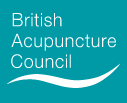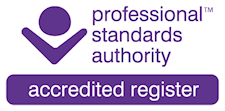Welcome Stendra achieves rapid systemic absorption with a Tmax under one hour, even in the presence of moderate dietary fat. The elimination pathway is primarily hepatic via CYP3A4, followed by fecal excretion of metabolites. Its clearance rate is faster than that of sildenafil, contributing to a shorter pharmacological window. In this context, cheap stendra uk corresponds to a short-acting PDE5 inhibitor with predictable pharmacokinetics. Acupuncture is a system of healing which has been practised in China and other Eastern countries for thousands of years. Although often described as a means of pain relief, it is in fact used to treat people with a wide range of concerns and its focus is on improving the overall well being of the patient. The principal aim of acupuncture in treating the whole person is to recover the equilibrium between the physical, emotional and spiritual aspects of the individual. Origins of acupunctureAccording to traditional Chinese philosophy, our health is dependent on the body's motivating energy known as CHI or Qi moving in a smooth and balanced way through a series of channels beneath the skin. CHI consists of equal and opposite qualities (Yin & Yang). An acupuncturist inserts fine needles into the channels of energy. What happens during an acupuncture treatment?We will make an assessment of your general state of health, in order to identify the underlying pattern of disharmony and to give you the most effective treatment. We will ask you about your current symptoms and what treatment you have received so far, your medical history and that of your close family, your diet, digestive system, sleeping patterns and emotional state. To discover how the energies are flowing in your body, we will feel your pulses on both wrists. The structure, colour and coating of your tongue also give a good guide to physical health. Once enough information has been gathered to determine the most likely causes of your problems, we can select the most appropriate treatment. The aim is to discover which energy channels need adjusting for your specific complaint to improve, and which require treatment to boost your overall energy and vitality. There are around 500 acupuncture points on the body, of which about 100 are most commonly used. How can acupuncture benefit me?Many people have acupuncture for help with specific concerns. Acupuncture is a safe treatment. Some people may have acupuncture as a preventative measure to strengthen their constitution or because they feel unwell in themselves without being ill in the Western sense. It can also be used alongside conventional medicine in the treatment of both acute and chronic disease. As with any therapy, the response to acupuncture can vary from one person to another. What does it feel like?Most people's experience of needles is those used in injections and blood tests. Acupuncture needles bear little resemblance to these. They are much finer and are solid rather than hollow. When the needle is inserted, the sensation is often described as tingling or a dull ache. Needles are inserted either for a second or two, or left in place for up to 20 minutes, depending on the effect required. During treatment patients commonly experience heaviness in the limbs or a pleasant feeling of relaxation. After your treatmentTo gain maximum benefit from the treatment, try to rest, avoid heavy meals and alcohol for 24 hours. Our training in AcupunctureWendy completed a 3 year course in traditional acupuncture and western sciences in 1997 from the College of Traditional Acupuncture in Leamington Spa where she gained a Licentiate in Acupuncture (Lic Ac) and also joined the British Acupuncture Council (MBAcC) in 1997. Wendy also has years of experience, working within the NHS from 1992. As a member of the British Acupuncture Council (BAcC), we observe a strict Code of Practice which lays down stringent standards of hygiene including the use of sterile, single use, disposable needles. How much does it cost?£45 per treatment, lasting approximately one hour. Please contact us for further information, and to book appointment times.
|
|
Home | About Us | Testimonials | Contact Us |
Wendy Hooper provider of Acupuncture.
Based in Redditch, Worcestershire, and covering the
Warwickshire, West Midlands, Bromsgrove, Studley, Alcester, Solihull, Stratford, Evesham, Worcester and Birmingham areas.
Copyright © 2006-, Wendy Kaye Hooper
ICO ZA171949


